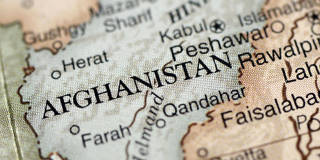 keithbinns/Getty Images
keithbinns/Getty Images
阿富汗的新章节
新德里——阿富汗近代的地缘政治历史可以被分为五个阶段。但现在它正处在又一次转型的风口浪尖,而新阶段的决定性特征尚有待观察。
在从1974~1979年的第一阶段,巴基斯坦开始为可以用于反对默罕默德·伊德里斯·达乌德政府的伊斯兰分子提供庇护和训练。而后,从1979~1989年,巴基斯坦、美国和沙特阿拉伯资助、训练并装备了与苏联军队作战的圣战游击队员。从1989~1996年,随着地区军阀夺取权力、逼近喀布尔并推翻莫罕默德·纳吉布拉总统,阿富汗进入到转型阶段。从1996~2001年,塔利班政府带来了一波肆无忌惮的野蛮期——除巴基斯坦、沙特阿拉伯和阿拉伯联合酋长国以外——阿富汗陷入到外交孤立阶段。
第五阶段始于2001年911袭击发生后。自那以后,美国一直与支持战争的东拼西凑的阿富汗政府纠葛不断,共同针对重新兴起的由巴基斯坦支持的塔利班。第六阶段凸显了两个问题:美国是否失去了阿富汗战争,如果是,原因何在?
https://prosyn.org/fEwr5wczh
To continue reading, register now. It’s free!
Register Now
Already have an account?
Log in



新德里——阿富汗近代的地缘政治历史可以被分为五个阶段。但现在它正处在又一次转型的风口浪尖,而新阶段的决定性特征尚有待观察。
在从1974~1979年的第一阶段,巴基斯坦开始为可以用于反对默罕默德·伊德里斯·达乌德政府的伊斯兰分子提供庇护和训练。而后,从1979~1989年,巴基斯坦、美国和沙特阿拉伯资助、训练并装备了与苏联军队作战的圣战游击队员。从1989~1996年,随着地区军阀夺取权力、逼近喀布尔并推翻莫罕默德·纳吉布拉总统,阿富汗进入到转型阶段。从1996~2001年,塔利班政府带来了一波肆无忌惮的野蛮期——除巴基斯坦、沙特阿拉伯和阿拉伯联合酋长国以外——阿富汗陷入到外交孤立阶段。
第五阶段始于2001年911袭击发生后。自那以后,美国一直与支持战争的东拼西凑的阿富汗政府纠葛不断,共同针对重新兴起的由巴基斯坦支持的塔利班。第六阶段凸显了两个问题:美国是否失去了阿富汗战争,如果是,原因何在?